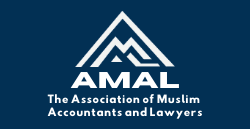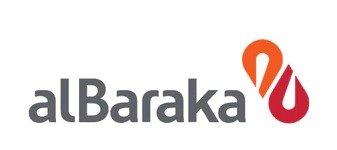ON 10 SEPTEMBER 2013.
The Case for the Gold Dinar and Islamic Complementary Currencies
By Alberto G. Brugnoni
Introduction
According to the Sunnah (the ways, teachings and activities of Prophet Muhammed p.b.u.h), money must possess an intrinsic value, i.e., the value of the money, whatever that value might be, and regardless of changes in value that might naturally occur, is stored within the money, and thus is immune to arbitrary external manipulation and devaluation, the standard being precious metals or commodities that are consumed regularly as food. Its value can in no instance be found outside.
As a consequence, the only money recognized as such by Islam is commodity money, i.e., money whose value comes from a commodity out of which it is made or from objects that have value in themselves as well as for use as money. Its exchange is lawful only if carried out at par.
The Prophet (peace be upon him) said: “Gold for gold, silver for silver, wheat for wheat, barley for barley, dates for dates, and salt for salt.” [When a transaction is] like for like, payment being made on the spot, then if anyone gives more or asks for more, he has dealt in riba, the receiver and the giver being equally guilty.
On the other hand, Islam does not recognize paper money as such. This includes credit money, i.e., any future claim against a physical or legal person that can be used for the purchase of goods and services, such as personal IOUs, and, in general, any financial instrument which is not immediately repayable or redeemable in specie on demand. It also includes fiat money, i.e., money declared by a government to be legal tender and whose value is unrelated to any physical quantity, its legal value being an imposition by the state on the people and its production a limited monopoly by the same state that imposes it.
As the use of debt in exchanges is in most of the cases haram (prohibited) and only limitedly allowed in a private situation, the debt nature of paper money prevents its use as a medium of exchange in Islam. Nevertheless, its use prevails nowadays in Muslim countries, as they are an integral part of the world financial system and depend on institutions such as the IMF and the World Bank to meet their financial needs.
Modern Phenomenon
The removal of money with intrinsic value from the monetary system of the world and its replacement with money that has no intrinsic value and, in particular, the legal tender laws that prohibit the use of gold and silver coins as legal tender is, even in the Western world, a modern phenomenon that was imposed on the Islamic world during colonial times. It started in 1933 in the US, when gold coins were demonetized, no longer permitted as legal tender and therefore could not be used as money. In exchange for gold coins and bullion, the Federal Reserve Bank offered paper currency. The British government soon followed suit. The process continued with the prohibition of any link between gold and paper currencies other than the US dollar in the Bretton Woods Agreement and culminated in 1971 when the US reneged on its treaty obligation to redeem US dollars for gold.
This process has been mirrored by the introduction of fractional reserve banking and the lending on interest of money not in possession. Fractional reserve banking, or multiple deposit expansion, is a practice in which banks keep only a fraction of their deposits in reserve (as cash and other highly liquid assets) and lend out the remainder, while maintaining the simultaneous obligation to redeem all these deposits upon demand. This new money creation is achieved through credit creation that is purely an accounting process that does not involve any real money and as such, its Shari’ah compliance is highly questionable and can be deemed acceptable only under the principle of necessity. When a loan is extended, the borrower is recorded with a double entry, one debit and one credit. The debit denotes the borrower as a debtor to the bank for the loan taken, while the credit entry denotes him as a depositor for the amount extended to him. These are simply accounting entries that do not involve the movement of any commodity currency notes as required by the Shari’ah.
The extension of a loan does not reduce the deposit of any of the depositors at all, because it is new money created into the economy and the introduction of new money makes the transfer of ownership of assets possible. Initially, neither the bank nor the borrower owned the assets. The bank did not even have the money then. But they became the owners of the assets after the bank created money out of nothing through the fractional reserve banking process. From an Islamic economy perspective, every such transfer of asset that is not a gift, inheritance or likewise, must be compensated for. If so, who then is paying for the assets?
Money creation through fractional reserve banking is the creation of purchasing power out of nothing, which brings about unjust ownership transfers of assets from the economy to the bank/borrower, effectively paid for by the whole economy through the expansion of basic money supply. This transfer of ownership is not based on human effort by taking on legitimate risks and thus violates the ownership principles of Islam and also has elements of riba (interest).
Gradual Steps
The present situation calls for putting high on the agenda of Islamic finance the issue of the nature of money, the tenets on which an Islamic central bank should operate and of the means it should provide to the economy to finance its development. The replacement of the haram current fiat and fractional currency system with halal (lawful) commodity money the gold dinar solution that is the correct Shari’ah (Islamic law) -compliant way to address these issues − seems, at present, unrealistic. This replacement could indeed take place against the money issued by the central bank, but not against the money supply that has expanded manifold under the fractional reserve banking system. In addition, it would be politically impossible for the Muslim countries to break away from the IMF and World Bank and chart an independent course for managing their own financial systems.
A more sensible course of action appears to be a gradual movement towards this goal with the introduction of complementary currencies based on Islamic principles. The commodity money system (gold coinage) can in fact well function without assigning any role to the monetary and regulatory institutions. A market-oriented approach whereby the use of a new parallel currency alongside the existing national currency is permitted would only require a political decision on the part of the government. Local circuits could then be established in which the gold dinar, declared legal tender, would work as a medium of exchange in the local economy. At a further stage, this complementary currency could also partially be used as means of payment in international transactions.
There certainly are a number of hurdles to be cleared on the road to acceptance of Islamic complementary currency. As this traditional idea has faded away from the memory of Muslim societies, the entire local community would require considerable education. Residents would have to learn to become accustomed to using two forms of currency and commercial and service providers who are willing to accept the currency would need to adjust their accounting methods to accommodate the new system. In addition, the complementary currency system is a flat structure and this often results in a lack of appreciation for the need to have a well-functioning organization.
Its implementation would, by all accounts, be slow, but the return to the sources of Shari’ah in monetary policy is without a doubt a necessity if Islamic finance is to retain the role of an alternative viable proposition to the current financial turmoil.


















